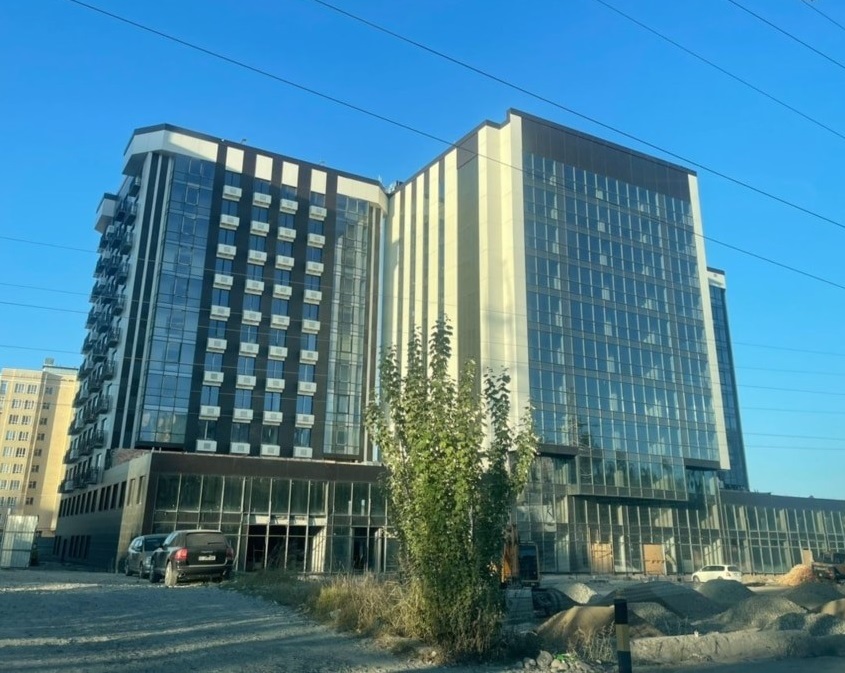In Biskek Putin's first foreign stop after the Hague mandate
In Kyrgyzstan, the Russian president attends a summit with Central Asian heads of state. He needed this summit to show the Western world that he was not totally isolated. To ease the burden of sanctions, Russia uses its enormous potential of energy resources.
Bishkek (AsiaNews) - Vladimir Putin's trip to Bishkek in recent days to meet the leaders of the CIS, the Community of Independent States which arose at the end of the USSR, was the Russian president's first trip abroad after the order of arrest issued by the International Criminal Court in The Hague, which had decreed his status as a war criminal, relegating him to the margins of the community of states of law.
Putin had to give up traveling to South Africa, India and other countries adhering to the Rome Statute for crimes of global importance.
Beyond the negotiations and mutual solidarity agreements between the ex-Soviet countries, the trip therefore took on a symbolic meaning to shore up the reputation of the head of the Kremlin, after the Ukrainian massacres and the deportation of children, even more so against the backdrop of new tragedies in the conflict between Israel and Hamas terrorists, which makes the entire geopolitical picture even more tumultuous.
Putin had to convince his historical allies that he was still a leading protagonist in all the major events of current world affairs, and that he had not lost his ability to influence at all latitudes.
The leaders of the Central Asian countries instead participated in high-level meetings in the USA and Germany in September, opening up to increasingly intense relations in the West and the East. Putin therefore had a great need for this summit, to rebalance the overall picture and "show the Western world that he is not totally isolated", as commented by Kate Mallinson, collaborator of the "Russia and Eurasia" program of the English research center Chatam House.
The CIS was born in 1991 bringing together all the ex-Soviet republics except the Baltic States, while Georgia and Ukraine then left it, and now Moldova has also suspended its participation. The other eight countries (Belarus, Armenia, Azerbaijan, Kazakhstan, Uzbekistan, Kyrgyzstan, Tajikistan and Turkmenistan) are all still considered "friendly" by the Kremlin, even if the level of harmony with Moscow is not identical for each one, and in particular in the last Tensions with Armenia have risen significantly following the conflict with Azerbaijan.
The meeting in Bishkek was held against the backdrop of conflicts in Ukraine and the Caucasus, as well as echoes of that in Israel, and above all the economic framework modified by Western sanctions against Russia, which paradoxically increased trade in Central Asia from both the directives of the East and the West.
A week before the summit, the presidents of Kazakhstan and Uzbekistan, Kasym-Zhomart Tokaev and Šavkat Mirziyoyev, went to Moscow to agree on the transportation of Russian gas through their countries, and Putin praised this “trilateral energy project”. In Kyrgyzstan, the Russian president has tried above all to increase the flow of deliveries of products under sanctions, giving more guarantees to the free entry of Central Asian labor migrants, and ensuring trouble-free transportation of oil through the pipelines of the Caspian Sea.
According to Upstream Online analysts, to lighten the burden of sanctions, Russia uses its enormous potential of energy resources, as in Moscow's meeting with Tokaev and Mirziyoyev, an agreement worth 2.8 billion cubic meters per year.
The Russian gas will be distributed both in Astana and in the northern and north-eastern regions of Kazakhstan, which are also the most Russian-speaking areas of the country, and in this way Russia partly manages to contain the increasing activity of Westerners in the region, making also turn a blind eye to the Central Asians on the serious consequences of the conflict in Ukraine.
29/09/2022 09:37
04/02/2009
17/01/2024 10:07
22/09/2022 08:55







.png)










